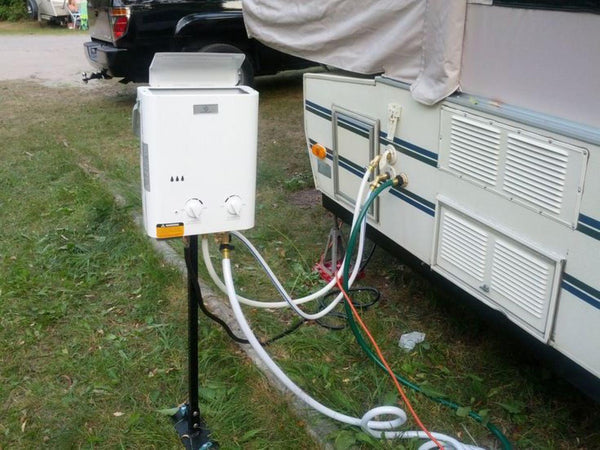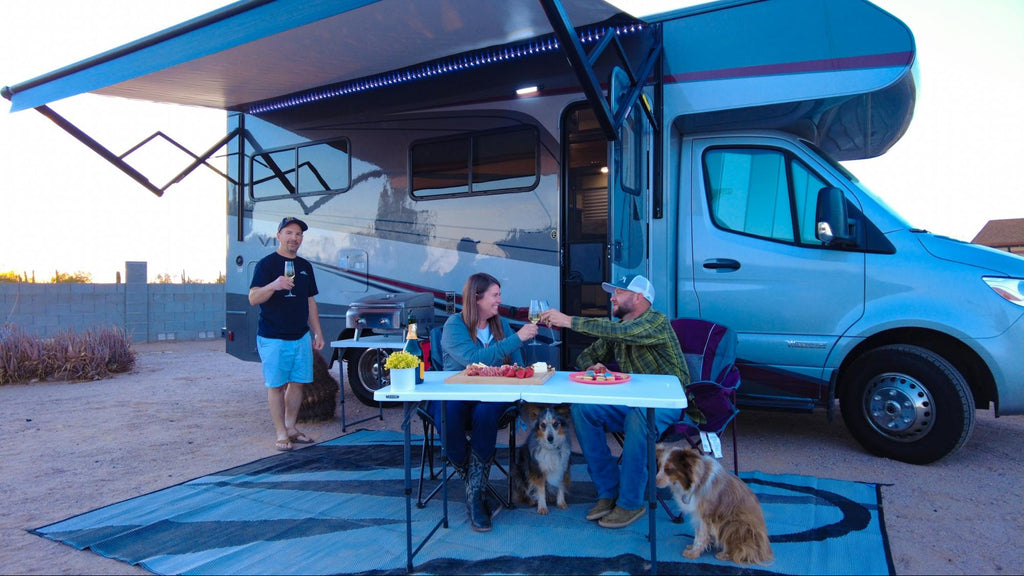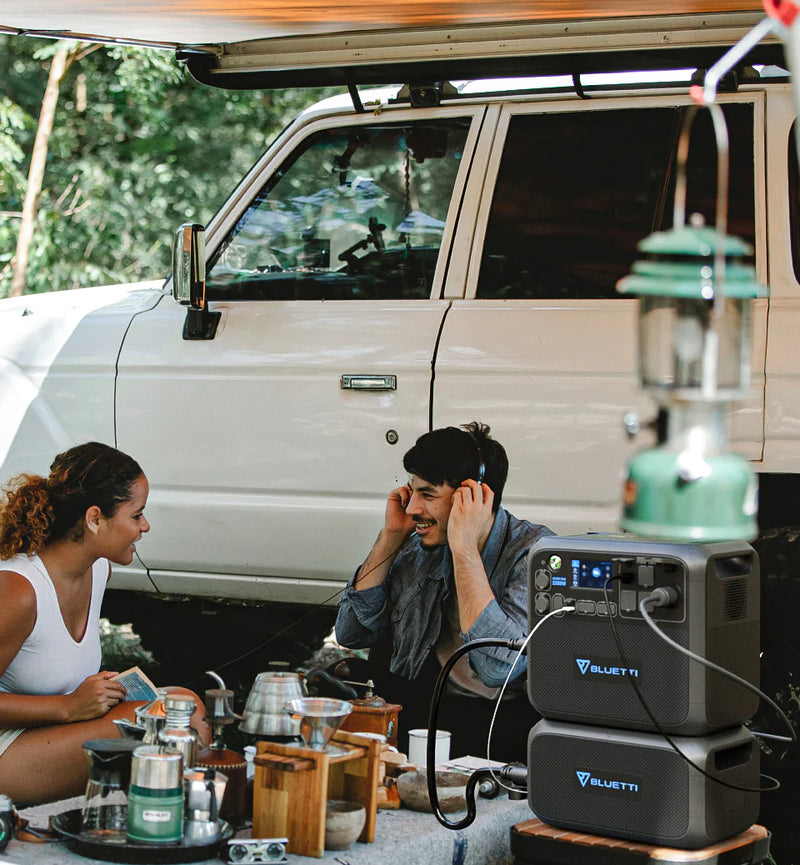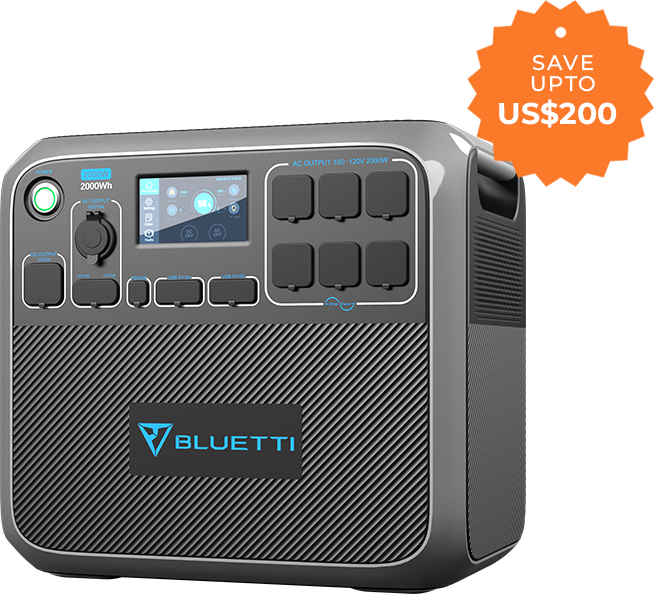What everyone likes the most, of course, is a nice and hot shower. One of the best things about the RV lifestyle is that you always have an RV water heater no matter where you choose to roam, which means that you can get those showers literally anywhere in the world. But, as there are multiple choices, each appealing to distinct requirements, it is tough to choose the right one.
Tankless heaters are instantaneous and more expensive upfront. Tank-type heaters provide a constant flow of heat but are often limited in capacity and occupy space. Hybrid models integrate the best of two worlds. Considering factors such as RV size, budget, and travel frequency helps you make the right decision for the most comfortable appearance. Dive into the kinds of RV water heaters to get the best of the lot for your travels, with an assurance of hot showers on the go.
How Do RV Water Heaters Work?

RV water heaters resemble their counterparts in regular houses but feature slight differences in size. For a home, a water heater might have a capacity of 40-50 gallons, whereas an RV typically has a smaller 6-10 gallon tank.
Though the RV water heaters are tiny, the functionality is similar to that of homes’ water heaters.
Gas Water Heater
Gas-fueled water heaters, especially propane, are perfect for off-grid trips, given that they require little electricity. The burner ignites with a small spark from a 12-volt power source that is controlled by the thermostat. Gas units require negligible amounts of electricity for ignition and control; no electricity is needed for actual water heating. The pilot light ignites the combustion process of heating water without any electrical fuss. Press the button, be patient, and within 10-30 minutes, your water will achieve the comforting temperature of 120 Fahrenheit degrees.
Electric Water Heater
Electric water heaters heat the water in the tank by using an electric heating element. In the RV, this means that you have to have a source of 120V AC to run the heater. The water heater together with the input of the electric thermostat heats up the water. Electric water heaters require a lot of electricity, so RV-ers equipped with all-electric water heaters usually have to be plugged into shore power or generator to use them.
Types Of RV Hot Water Heater
As RV water heaters go, there are two main types to look for – Gas RV Water Heaters and Electric RV Water Heaters. Let us move into the differences to help you select the best mobile house for your needs.
Gas RV Water Heaters
Gas RV water heaters are small mobile units well suited for moving homes. The metal tanks, made of aluminium or steel and usually durable, withstand combustion effectively. The burner assembly containing heat-resistant materials lights propane for fast and effective water heating.
Gas RV water heaters cost between $ 300 and up to $800 USD or more depending on brand, capacity or features and can be bit pricier than the electric ones.
Electric RV Water Heaters
Electric RV water heaters resemble residential electric water heaters that have a tank that is made of durable material such as glass-lined steel or stainless steel. Power element, which is typically of nickel or stainless steel, converts electrical energy into heat with high efficiency.
Most electric RV water heaters cost within the same range as their gas equivalents, starting from $300 to $800 and more.
Pros and Cons of Gas RV Water Heaters

Pros
Efficient Off-Grid Heating
Gas RV water heaters excel in remote situations because they run on propane with minimal electric consumption. This is why they are perfect for boondocking trips in which shore power is often not available.
Quick Heating Time
Propane burner ignites the combustion process that enables gas water heaters to warm water quickly. This quick heating feature will make you save time by not waiting for it to get the desired hot water.
Precise Temperature Control
The gas water heaters come with a thermostat, which provides precise temperature control allowing you to make use of hot water at a comfortable temperature that is suitable for you. This means during your journey; you are assured of a smooth and enjoyable state.
Cons
Limited Electric Efficiency
Gas water heaters might be efficient at using propane but still take a slight amount of 12-volt power for ignition and control. This, therefore, implies that they are not completely electricity free even though the usage is minimal.
Dependency on Propane Supply
Gas water heaters use the propane gas supply, and in case you run out of propane during the voyage, you could find yourself having to wait for a refill to have access to hot water again.
Initial Cost and Maintenance
The initial cost of gas RV water heaters may be higher than some electric models. Also, regular maintenance and inspection of the combustion equipment will be needed adding to the total cost of ownership in the long run.
Pros and Cons of Electric RV Water Heaters
Pros
Lower Initial Cost
Many electric models are initially less expensive than some of the gas alternatives. This affordability makes them a popular choice among RVers looking for affordable hot water alternatives.
Low Maintenance Requirements
The electric RV water heaters require less maintenance compared to their gas counterparts. Due to the absence of the combustion component included in gas heaters, maintenance needs are usually easier and less frequent.
Convenient Power Source
Electric RV water heaters run on a typical 120V AC outlet power; therefore, they are ideal when plugged into shore power or a generator. This availability guarantees an uninterrupted supply of hot water without the need for other sources of fuel.
Cons
Power Dependency
Electric water heaters work on a constant source of electricity such that the low pressure can disrupt the process since it is not continuous. However, when electricity is absent in the cases of boondocking trips without electricity and in places where no power is available, dependence on a solar generator or alternate source of power is often the preferred option.
Slightly Slower Heating
As compared to gas water heaters, electric models may take slightly longer to heat. For RV enthusiasts who stress convenience in hot water, this can be a factor to consider.
Limited Off-Grid Capability
Electric heater is an option for scenarios where a vehicle is connected to the grid, but may not work well for off-grid adventures where electricity is not easily available. This restriction can also affect your flexibility regarding travelling arrangements.
Can You Use a Solar Generator to Power Electric Water Heaters?
Thinking about clean solar energy to run your electric heater? Go for it! Solar generators will enable you to enjoy the freedom of sustainable travel while fueling your water heater as well as other appliances. Combine the comforts of a road trip with eco-friendly adventure. Wish to ensure environmental sustainability and efficiency of the RV movement? We have rolled out the best BLUETTI solar generators to give you warm showers. Find out for yourself!
BLUETTI AC200L + PV350

BLUETTI AC200L is a powerhouse with improved speed, huge 8,192Wh power, and stealthy operation. Safety is guaranteed by sophisticated lithium-iron phosphate batteries and modern BMS. Extend with other batteries to provide continual appliance power during disruptions. Fast charging from 2,400W AC achieves 80% in half-an-hour. The 1,200W solar input is headed by the PV350 solar panel and is ideal for laptops, drones, refrigerators and more. PV350, made durable with anti-scratch ETFE, reaches a pedigree of 23.4% power conversion efficiency that turns the rays of sunlight into energy, like a boss. Its rating of IP65 addresses itself to water splashes. Indeed, AC200L charges your RV electric water heater with ease.
BLUETTI EP500 + 3*PV200

The BLUETTI EP500 boasts a state-of-the-art 5120Wh LiFePO4 battery and a 2000W pure sine wave AC inverter. Ideal for parties, hiking, for workshops, or during the case of the power outages. It covers laptops to electric vehicles with fifteen outlets. The highly sophisticated Battery Management System guarantees security and endurance. The built-in dual-core microcomputer and internet connection makes firmware upgrades a piece of cake. The BLUETTI PV200 solar panel has monocrystalline cells that convert up to 23.4% sunlight into energy. It is durable, simple to install, and works very well with the EP500. Power your RV electric water heater with ease. BLUETTI EP500 replaces the concerns with no more worries.
How to Choose the Best RV Water Heaters?
Take note of your RV’s space and fuel. Tankless propane, tankless electric and tank-style ones are all considered as the popular options. Tankless models are also space-saving but the flow rate could relatively be lower.
Capacity
Establish the necessary hot water by calculating the amount of occupants and demand. RV water heaters will have anywhere between 6-10 gallon capacity. Select a capacity depending on your consumption.
Energy Source
Choose a power source depending on your personal preference and camping pattern. Off-grid adventures are popular with users of propane heaters, while electric heaters are beneficial for RV parks equipped with electricity.
Size And Weight
Take into consideration the physical dimensions and also the weight of the water heater, particularly if your RV does not have enough storage space. Compact and portable models are more desirable for minimal use of space.
Recovery Rate
Seek a water heater that has a quick recovery rate. This is essential for ongoing hot water provision, especially if you have a larger RV or several occupants.
Safety Features
Place emphasis on safety related to pressure and temperature relief valves. These features provide safe operation and security for your RV plumbing.
Durability and Build Quality
Opt for an electric heater with immense durability and construction quality. Stainless steel or aluminium tanks are highly resistant to corrosion and are extremely durable, which increase the lifespan of your RV water heater.
Final Thoughts
Armed with all the necessary information, buying your RV water heater becomes quite simple. Make sure it matches your travel lifestyle or your periods of immobility. This wise and informed choice ensures maximum functionality while you are on the road. Invest in a heater, which will be perfectly suitable for your RV parameters and provide you with hot water wherever your journeys might lead you.

